Growing the Fighting Game Community
by Jin Lovelace, HSM team writer & filmmaker
I love fighting games.
I love the thrill of the competition, the spectators, and the players that are so good that your burning desire to legitimately challenge the best and gauge your skill to see who will come out on top can be sated. Everything on the line; the best man (or woman) wins.
The genre has come a long way since the time when the scene was first introduced with Street Fighter II. Never mind which or what fighting game came out first, because at this point in time, all of it is irrelevant. When you had players line up and place quarters on the cabinet monitor to wait their turn, that’s when things got serious. I can deal without the loud, obnoxious trash talking from spectators however, but the importance lies in the challenge of taking out that player who overstayed his/her time on the that machine. Y’know — the guy who’s sporting 25 wins.
I’ve always hoped I could get into this. The excitement of the challenge and being around players looking to grow in skill and take on tougher challenges to compete and build a strong community. Personally, I desire to grow in skill, travel about and meet new people as I take on stronger challenges and build a resume of accolades. A personal goal of mine, and one I wish to remain focused upon.
Over time, we saw the genre grow into a phenomenon as more developers started to step up to the plate on creating a diverse library. One of my memorable moments in fighting games was playing King of Fighters 94 for the first time. Granted, I love Street Fighter; nothing against it in any way, but I’ve had a thing for SNK fighting games back in the day. I plunked a dollar in and was hooked; before long I decided to spend $20 worth of tokens, grabbed a bucket, and sat there nearly all day just to play and learn the game with a few fellow gamers around. We managed to get a big crowd over to our area and, three weeks later, the arcade owner thought we should try to “sell” Samurai Showdown 2. They displayed the game on a big screen TV and that game alone made the most money out of every other game there.
The thing was: we as avid gamers sought out the competition — not out of fame and fortune, but because of the love and passion for the genre. Which, naturally, helped bring the crowd together. We may have had some heated arguments and been a bit rowdy, but we came together as family and actually spread the love to everyone and anyone that desired to legitimately be a part of our circle and showcase their motivation and drive. There’s nothing wrong with aiming for the top spot in the scene.
Fast-forward into modern times: everything is all online, good fighting games mean longer combos that can turn into infinites that ridicule the value of every other fighting game. I don’t mind the system direction at times, as long it has some depth and makes sense.
Nowadays, the Fighting Game Community (the FGC, from here on out) has taken this route of wanting more out of players or to see those to step up their skill, or desire a diverse lineup of games to be seen at EVO or any other fighting game event. But when they see the usual players winning these tournaments, whether they are from other countries — or the usual names like Chris G, winning yet another local battle — many will tear down the walls to say they are tired of them winning and want a new hero to rise up to the stand and start creating a different scene.
It’s time for me to elaborate on something that needs to be stated and to showcase the large picture: it’s time to wake up.
What do I mean by this?
This ten-minute video, featuring renowned King of Fighters legend Dark Geese, sums up a bit of this article.
When I first saw this five years ago, I was wondering where the scene was here in Georgia. You have a few names in the state and a couple of places to go in regards to finding the right people for better competition, but this is just a few names and a couple of locations that are only passionate about SNK games. Try to set any localscene up, and people will rebuff it in favor of other games like Street Fighter and Marvel Vs series.
So what I wish to expound upon are some key points that I feel are the problem areas within the community and give some solutions towards the end of this article. I warn you, however, that what you will see is some graphic material called “truth,” and mental discretion is advised.
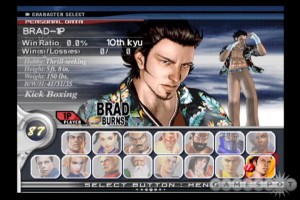 Scene & Diversity
Scene & Diversity
I even remember back in 2002 when I was at my local game room where players met to play Magic: The Gathering. I had my fill of winning a few Friday Night games and even won a regional tournament, but that was it. I didn’t feel that passionate about the game; I just liked a Dragon deck, how I could spend less mana for bringing out a 9/9 Killmouth Dragon, give haste, and swing for the win. Oh, and the pretty pictures also helped as well.
You see, my problem was that everyone there wanted to play fighting games whenever I mentioned names such as Street Fighter III: 3rd Strike, Virtua Fighter 4 Evolution, and Bloody Roar 4 for the Playstation. So I asked the shop owner if I could bring my equipment there (PS2, TV, Arcade Stick, Fight Pad, games, and a smile) and, on his approval, went on to attempt a scene at the War Room. Granted, a few players stepped in and played against me; I won some, lost some, but it was all fun…until I placed VF4:E in.
I regard this game as the pinnacle of 3D fighting games of its time. There are others that cut close to this title, but none that are so elaborate as VF4:E. Aside from the gorgeous graphics and the smooth gameplay, the game went on to include something that was never — ever – present in any fighting game at the time here in the US: an actual tutorial mode.
So many complaints were focused on this game’s difficulty, and to be fair, there’s some validity to that argument. But the US’ most common complaint would be, “Japanese players play more than Americans,” which is ridiculous and somewhat racist. The game has an amazing robust tutorial mode that teaches and shows you everything about what the game offers. It would give you tips, gauge on your movements, examine what your strengths were as a player, and even diagnose various weaknesses. No two characters play alike (as oppose to, say, Ryu and Ken in the Street Fighter series); each one has their pros and cons.
So when I popped in this game and went a few matches, I noticed that other players just weren’t hooked, but salty as well. They would imply that VF wasn’t as great as Tekken and how it’s just not easy to pick up and play, but nonetheless some opponents decided to step forward.
Fast-forward a couple of months in, and we had a small community for Virtua Fighter 4 Evolution, until the establishment moved to a different location and out of my area. Though it was only a few short months, I managed to build a solid community with this game alone, in spite of what others may say. Should the War Room have stayed in the area, the community would have been larger and recognized quickly for bringing some new, unique fighting games onto the scene rather than just another Street Fighter. I taught players how to play the game efficiently, gave tips, and had a solid group of friends that wanted to expand their skill to other areas in Georgia and beyond.
The fact is that these days, a lot of players don’t wish to try out anything new. No one desires to spend their time to actually learn these fighting games. I mean, after all, I thought the FGC stood for “Fighting Game Community”, not just “Street Fighter and Marvel Vs Community”.
Again: we all desire something different, but no one desires to do anything to step it up. This damages the genre’s progression as a whole as well.
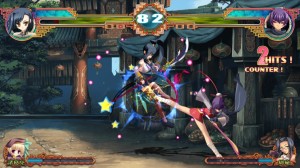
Arcana Heart 3: one of the finest fighting games for the PSN, and there is no love shown for it here in America.
Passion & Competition
I’m just speaking about diversity in fighting games and why there aren’t more of them. The lack of interest in trying something new can be stifling. I can only stomach poor commentary from an Ultimate Marvel vs Capcom 3 stream for so long before I turn back to Dark Geese’s casual videos.
But if you wish for me to paint you a larger picture, then I shall. However, this one isn’t going to be pretty, and I hope whomever is reading this article (especially players in Atlanta, Georgia) will understand what I’m about to put on my canvas.
This video is a stark testimony that a lot of players in the east-coast scene need to finally step up their gameplay. I’m not a fan of this game, but I can’t dismiss just how fun it is to watch and enjoy some of the skill input by some of the quality players in the community. The problem here in this video is in how the US scene relies on a tier list to dominate the competition. Here, a Japanese player who crosses over to play the Americans, and masterfully destroys every single player with three characters that the community would deem as “bottom tier”. Some called his tactics “scrubby” and “lack of skill”. However, what I saw was an interesting thing that one of my favorite (and much respected) commentators, James Chen, would say: “PR Balrog has to watch out for his overhead kicks and that Log Swing”. Had Balrog just simply blocked the attack, he would’ve adapted to Ageojoe’s tactics easily.
But, of course, not everyone would take the time out to ever think on this because it’s something that Ageojoe actually exploited about us American players: we are some of the laziest players around, will inevitably take the easiest route to win, but never step it up beyond that.
And during that time, mind you, I was wondering how many Atlanta players made the top 8 in any game that was featured there. I can tell you this much: there is only a handful that were placed at least top 20 in Tekken 6 at the time.
No one from Atlanta ever won Final Round, to my knowledge. It proves a point: that you have the entire countries of Japan, Korea, and Europe that dedicate their passion to the genre and pour their talents and skills into the games that we love and enjoy, yet — as to what Dark Geese stated in his video — it’s funny that you would have to travel to the west coast of America to find a handful of players in a couple of fighting games, and only bits ‘n pieces here in the east coast, with maybe the top eight to ten players only versed in a few games at best.
Again, this is a shame.
Online & Offline Competition
I think this is also something that I need to stress right here: there is a huge difference between online and offline battles.
I remember when I couldn’t hear enough of my friend who launched himself into a boasting campaign for defeating a pro-player in a Super Street Fighter IV online casuals session. Granted, his skills are rather exceptional and he did pretty well against the player.
However, there are some very minute details to playing a pro-player online versus offline at a tournament. I’m not saying at all that you shouldn’t take online competition seriously; in fact, I encourage it, as it simulates your local scene, should there be none in existence. The problem with this sort of thing lies in the online community itself. Players who are that skilled in this game offline won’t necessarily carry their tactics online because they just don’t work.
In another UMvC3 example, the video showcases high-level play with Marlinpie and PR Balrog. The match is very calculative and, if you notice, the combo strings are efficient to put away characters and end the match without any lag inputs. This is, of course, offline gameplay.
Nine times out of ten, you won’t get this level of play online at all. Lag matters and it definitely makes a total difference on how you approach each session. You can’t go in and expect to throw certain loops towards your opponents, as online gaming can affect frame advantages as well. So what players would conform to online is a method system of repeated combos and strategies that may work for some of the pro players (and “scrub tactical” players) online, but will never be as effective against monsters like Justin Wong or, if you’re into Virtua Fighter, Bunbun Maru.
This isn’t to say there aren’t any legitimate online pro-warriors as well, but it isn’t also to say any of the top players are legit. Legendary2000, a player whom I’ve known for a good 4-5 years now, is renowned for his online high-level play and skill, but would be typically ridiculed as a “booster” due to the type of play style he purveys. He has a solid balance of skill and execution that he works hard to place top with his main character, Ryu.
In fact, lets touch upon the online features that are prevalent now.
The Ranking system. Do you honestly think the feature is worth it at all? Back in the arcade scene, if you’ve managed to beat some of the top players there face to face, you’ve earned the respect from others because you fought so hard and managed to improve upon your skill. The online rank system is suppose to mimic this to highlight some of the skilled players that waltz the servers, champing at every bit of competition that comes their way. Instead, and based on the online features available and its structure, you’re greeted to a replay video that shows an opponent allowing someone to defeat them to rank up, denuding any legitimacy there is about them as well as the ranking system in the game. One such fine example is Tekken Tag Tournament 2’s rank matches. You’ll find a bevy of replays that display players doing exactly this.
It’s one thing to ban the cheaters, but it got out of hand to the point where Namco Bandai had to just shut down the World Tekken Federation altogether, causing great disappointment to many who yearned for a good online FGC.
With cheating and boosting online ruining the experience of any social economy or ranking system, a lack of any ground stability in the online features, and any sort of gamer interests in a diverse selection of games that generate and garner the attention enough to at least reach any major local tournaments, it’s time for a wake up call!
 My Expectations
My Expectations
It’s time to take a stand on this dilemma. It’s time that we stop taking everything for granted and start generating user and gaming interests, even if it means that I have to pause working through the backlog of games that I have now. Too many people are putting in work to showcase great games, but all of it is going towards other IPs that are becoming lackluster in substance.
So my expectations?
-If you have a game that you wish for the FGC to take notice, get to work! If you have a capture device, I suggest that you use it and start promoting what you’re playing. I don’t care what it takes for you to do it, just don’t sit idle and think someone is already doing what you think you could be doing. Chances are, they aren’t.
-Your local game & hobby shop should have no qualms with you hosting local casuals in their establishment. I will tell you this right now, you’re going to play against a lot of casual players that won’t hold your competitive attention, but give it time. Word of mouth will definitely spread, and in a matter of time, players WILL show.
-When the aforementioned happens, that’s when you’ll want to start talking holding local tournaments for your community. If you’re hosting a Street Fighter, Marvel versus, and/or Tekken tournament, that’s great, but you will have a very slow start on building a scene. Along with those names, you have other great games: Virtua Fighter, Arcana Heart, Blazblue, King of Fighters, and Dead or Alive are among some of the fantastic names you can throw in and showcase. If you’re risky (and wish to see fanboys squeal), throw in Melty Blood and watch the fireworks at display. Just whatever you do, you make sure it’s about fighting games! If a player comes to the establishment asking for a game that anyone plays and you don’t own it, you do whatever’s necessary to obtain the copy and feature it.
-If you’re looking into playing in tournaments and don’t know where to start, research is a good way to speed up your knowledge base. Don’t head in thinking you will win every tournament, because it’s not about that. You’ll have to be willing to learn to know how to lose rather than learning how to win. Comprehend the game you’re playing and its system direction before you decide if this is the game for you. If not, there’s nothing wrong with having fun and not taking it seriously.
-Having knowledge about the genre that you love is a major plus for when people come to your events and pick your brain about what game they should play. You don’t have to know everything, but I can’t stress this enough: that everyone and their mothers will know about Street Fighter, even if they’ve never played it. Also, be open minded on the genre; a game might not have the highest metascore, but it can still be a hidden gem. There are many games available right now that aren’t being played due to inaccurate scores and reviews on them. It’s up to you to figure that out.
-If you’re not ready to lose, then don’t enter any tournaments. In fact, quit games altogether. There’s a major difference in playing against casual players that “don’t take the game serious” and ones that do. For the casual players: just because you have a life doesn’t mean serious, competitive players don’t. You like collecting Cars and Stamps. Serious players are hungry for competition. That’s their fun, and, to them, when they lose, it means they are learning something. It’s time to put that meme to rest and take your lumps like a gamer. Either you adapt or not.
For the serious players: you’re not god’s gift to gaming. I assure you, getting to that top spot will net you a big red dot on your head and will make you a target for everyone else out there. Namecalling someone just because they beat you — i.e. “scrub” and “noob” — doesn’t hold up as much to the receiving end when you were there on that level of skill. Never forget where you came from.
-If you’re looking for someone to teach you how to play a game, take it to mind that you need to be serious on it. Find a mentor and train. I made this mistake myself by hyping myself up only to allow fear and doubt kick in, which resulted in possibly losing my friendship with them and wasting their time. Don’t be another statistic to the number of people who hunger for a new game but don’t put forth the effort. Train, earn your stripes and step it up!
-Your neighborhood friends that you beat don’t mean you’re growing in skill; just means you can beat them. Playing against different players at different skill levels means a lot and helps build awareness and experience. Later on, you’ll want to expand beyond your local tournaments and start traveling to hit regional events. You build renown this way, which helps in getting your name out there, especially if you’re talking about curating community interests in fighting games.
-Lesson learned: your friends won’t believe in you, even if they say they do. It’s about producing your numbers and staying productive with what you do. Thus it’s best that you go alone. Meeting people along the way that have similar interests as you is much better than waiting for individuals who don’t desire what you believe in. It’s one thing to have great potential, but it’s another to exploit it.
-I will reiterate that when it comes to online gaming: it’s good to get familiar with skill and playing against players around the globe of all different play levels, but don’t allow that to be your bees’ knees.
-Expect a lot of trash talk from obnoxious players. Drown them out with such hits by Paul Hardcastle and Lupe Fiasco, then apply pressure to them with wit and poise rather than banter and stooping to their levels. Doing that will break confidence and generate negativity on your end. People need mature players to represent the FGC and it’s up to you to be that, not some character looking for fame. PlayStation Home has enough people like that already.
-For the developers: seriously start researching your demographics and tailor your online/offline features. Replay channels are great, but getting involved in your communities is a major step up.
However, and the big however: start taking risks again! Tekken Tag tournament 2 is a BIG, big example of this because it made no sense to skimp on content, take away a major factor to the online community and then move on to a project that has little to no audience. Dead or Alive 5 Ultimate wins in this department for continuing to update the game with new characters and costume content. The quality of said content maybe questionable to some, but Tecmo Koei is making an effort to show their players how much they mean to them.
Speaking of Dead or Alive 5 Ultimate, right now it’s a great game for me to get a head start on the competitive scene and that is something I wish to bring to Georgia. My desire is to gain renown, host events, and build a scene large enough for it to be taken seriously and have it featured at EVO. There are other plans to feature these fighting games and generate interests in them, but I don’t wish to expound upon my plans right now; you just have to wait and keep your eyes out here.
Overall, I hope my words hit home to everyone here: that we have to finally take a stand in these games. I’m aiming for the top spot to help build a community based on a genre that I grew up with and love.
I did it with Twilight Touch and PlayStation Home. Now it’s time to dive into fighting games and the communities around them. If no one is willing to step up to the plate, then I’ll be the one to do it.
Even if it means if I have to do it alone.
Share
| Tweet |


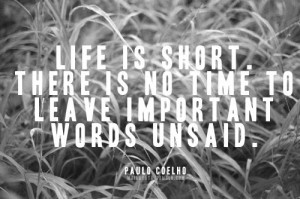
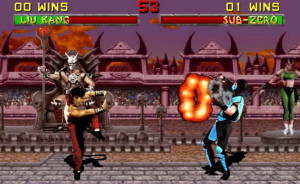
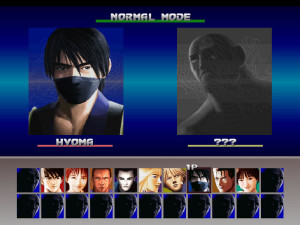
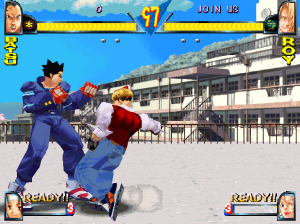
 Twitter
Twitter